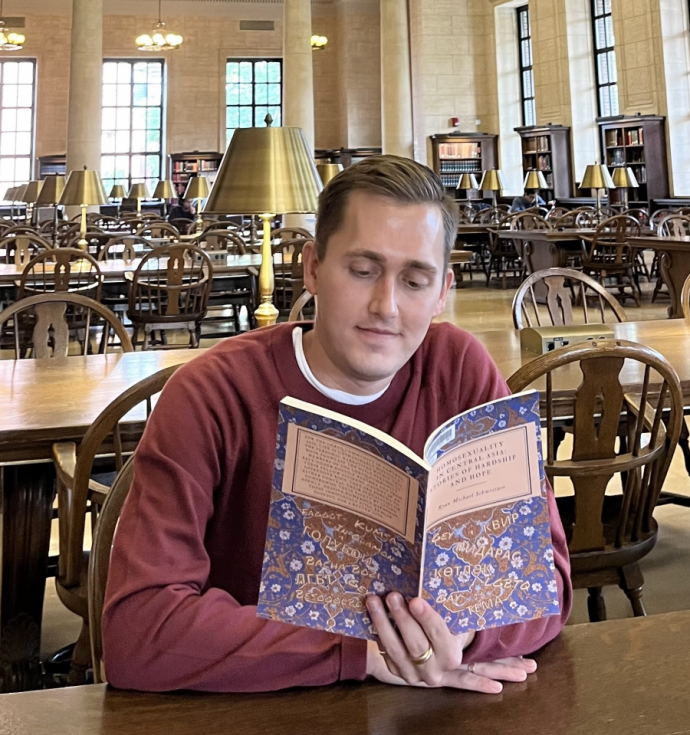News
Success Story: Ryan Michael Schweitzer, Politics and Security '2021
Q: Please tell us about the topic of your research and why you decided to choose this particular field of study.
A: During my international travels, and also while at home in America, I realized the growing importance of Islam. In my previous experiences in Uzbekistan, during my Fulbright and Master’s thesis fieldwork, I became very close to a lot of Uzbek citizens. To each of them, Islam meant something different and was practiced in various ways. This “lived” experience is what ignited my desire to learn more about Islam and its varied practices and applications in social and political contexts. Broadly speaking, in my previous coursework at Columbia University and at the OSCE Academy, religion was never a topic that I fully appreciated or explored. The more I learned about politics and the ways identities are constructed, I realized I needed to have a solid understanding of religion—in the case of Central Asia, I needed to gain an academic perspective on Islam. Therefore, I applied to Harvard University’s Islamic Studies program. At Harvard, for the next two years, I will study how political and social identities interact with and are impacted by Islam, specifically in Central Asia. While at Harvard, I will not only explore in-depth theological scholarship, I will also advance my local language skills, including Turkish, Turkmen, and Uzbek.
Q: Did your studies at the Academy play a role in choosing this program?
A: My time at the OSCE Academy is something I will always cherish, and in my coursework at Harvard, this experience is something I always reflect on. I believe the OSCE Academy truly helped prepare me for my studies at Harvard because the coursework challenged me to think critically, especially from a non-Western perspective. My advice for other OSCE Academy graduates who may also want to study at Harvard University is to focus on your writing skills and to really find a topic that you are passionate about. One of the most important parts of a Harvard application is the personal essay, which will ask you to identify a particular course of study and WHY the applicant wants to pursue it. This “why” could be for any reason, but it should come from the heart. The best applications are those that have a particular purpose and demonstrate to the admission committee a commitment to rigorously and thoroughly study the proposed topic.
Q: What are your future plans after receiving your degree from Harvard?
A: Harvard is a great place to study about Central Asia because of its resources through the Davis Center, a center for Eurasia and Russian studies. In addition, when students want to pursue a topic that is not normally offered at Harvard, like Uzbek, the University strives to make it a possibility. For example, I now get to take one-on-one advanced Uzbek courses. It has been an amazing experience thus far! After leaving Harvard, I plan to pursue diplomatic work with the U.S. Department of State or international affairs work with the U.S. Department of Justice. At the end of the day, I am passionate about helping to advance the rights and protections of at-risk groups around the globe, and I believe by pursuing Islamic studies, I will be more effective at creating localized solutions for complex societal issues.
Q: What advice would you give to our future graduates and what tips would you give to those who are going to apply to Harvard?
A: I am always available to help those applying to Harvard or to any American university. I consider my classmates at the OSCE Academy some of the most interesting and talented individuals I have ever met and I know we all have the ability to change our communities.



 Русская версия
Русская версия